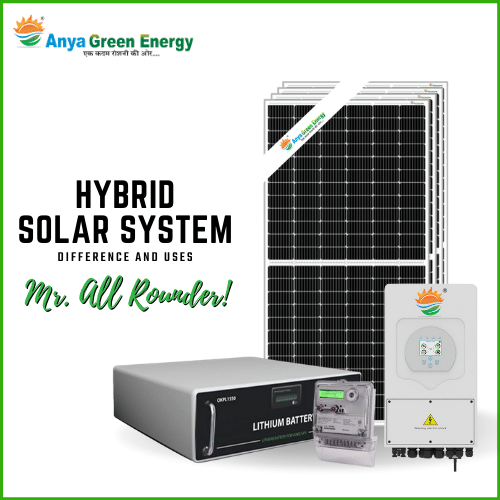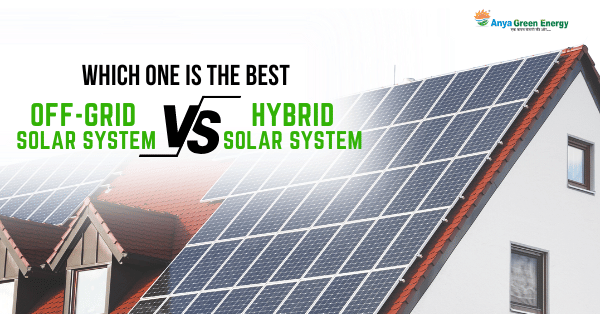HYBRID SOLAR SYSTEM FOR AUTO COMPONENTS INDUSTRY
In the ever-evolving landscape of industries, the auto components sector is steering towards sustainable and efficient practices. One groundbreaking solution making waves is the integration of hybrid solar systems. This blog explores the rationale behind choosing hybrid solar systems for the auto components industry, underscores their importance, delves into the myriad benefits they offer, and concludes on the transformative potential they hold.
Get Hybrid Solar System for Auto Components Industry

Why choose hybrid solar system for auto components industry ?
The auto components industry, characterized by its energy-intensive operations, is increasingly turning to hybrid solar systems as a strategic choice for power generation. The driving force behind this choice lies in the need for sustainable, cost-effective, and reliable energy solutions. By seamlessly blending solar power with conventional sources, hybrid systems ensure a continuous and eco-friendly energy supply, aligning with the industry’s dynamic demands.
Importance of hybrid solar system for auto components industry
The importance of hybrid solar systems for the auto components industry extends beyond mere operational efficiency. As global awareness of environmental sustainability grows, industries are under pressure to adopt eco-friendly practices. Hybrid solar systems offer a compelling solution, providing the industry with a chance to significantly reduce its carbon footprint. This not only meets regulatory requirements but also enhances the corporate image by showcasing a commitment to sustainable manufacturing.
Benefits of hybrid solar system for auto components industry
Cost Efficiency: Hybrid solar systems prove to be a financial boon for the auto components industry. The substantial initial investment pays off in the long run as solar energy, once harnessed, becomes a low-cost and sustainable source of power. This reduction in operational costs contributes significantly to the industry’s bottom line.
Reliability and Continuity: Uninterrupted operations are vital in the auto components sector, where precision and timeliness are paramount. Hybrid solar systems ensure a reliable and continuous power supply, mitigating the impact of power outages or fluctuations. This reliability translates to increased productivity and reduced downtime.
Environmental Sustainability: The auto components industry, often criticized for its environmental impact, can make strides towards sustainability through hybrid solar systems. By reducing reliance on non-renewable energy sources, these systems lower carbon emissions, aligning with global efforts to combat climate change.
Energy Independence: Hybrid solar systems provide a degree of energy independence to the auto components industry. By generating power on-site, manufacturers reduce dependency on external grids and insulate themselves from energy price fluctuations and potential disruptions in the power supply chain.
Scalability and Adaptability: Auto components manufacturing processes vary in scale and energy requirements. Hybrid solar systems offer scalability and adaptability, allowing businesses to customize their energy solutions according to specific needs. This flexibility ensures optimal efficiency regardless of the size or location of the manufacturing facility.
Corporate Social Responsibility (CSR): Embracing hybrid solar systems aligns with corporate social responsibility objectives. Companies in the auto components industry can enhance their CSR profiles by adopting sustainable practices, attracting environmentally conscious consumers and investors.
Government Incentives: Governments worldwide are incentivizing the adoption of renewable energy solutions. Choosing a hybrid solar system for the auto components industry not only aligns with sustainable practices but also makes businesses eligible for tax benefits, subsidies, and other government incentives, further enhancing the return on investment.
In conclusion, the integration of hybrid solar systems marks a paradigm shift in the auto components industry, offering a sustainable and efficient solution to its energy needs. The strategic choice of these systems is underscored by their cost efficiency, reliability, environmental sustainability, energy independence, scalability, and alignment with CSR goals.
As the industry propels towards a future defined by sustainability and innovation, the hybrid solar system for auto components emerges as a transformative force, driving not only operational excellence but also contributing to a greener and more responsible manufacturing landscape.


